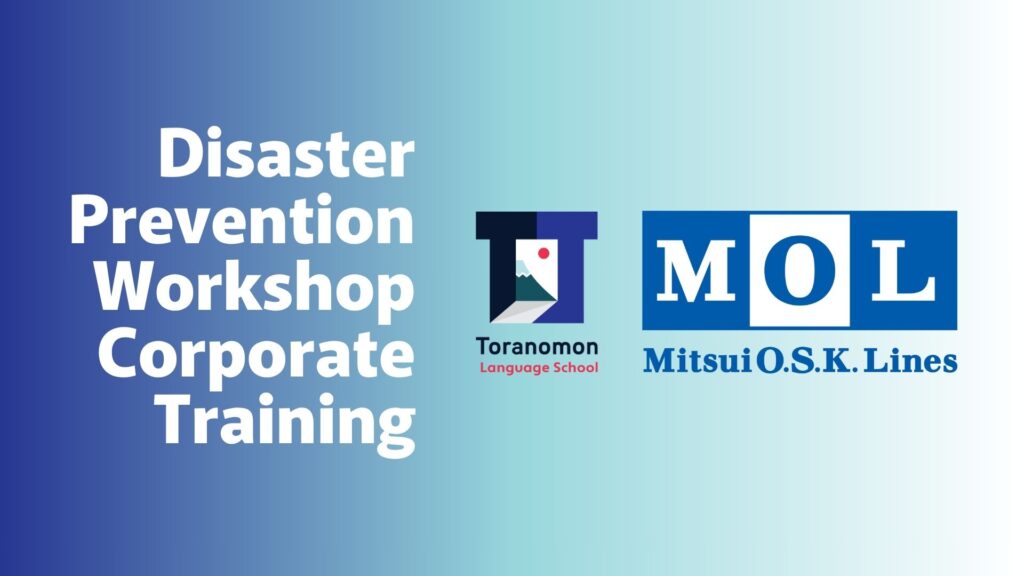Surviving Your First Japanese Company Event: What to Expect and How to Speak

Company events—whether it’s a nomikai (drinking party), kōryūkai (networking event), or a seasonal celebration—are an important part of professional culture in Japan. For many foreign professionals, these events can feel unfamiliar or stressful, especially when navigating subtle expectations and polite language. Fortunately, with the right preparation and key Japanese phrases, you can participate confidently and make a great impression. This guide will help you understand what typically happens at a Japanese company event, what behaviors are expected, and the useful expressions you can use to communicate naturally and respectfully. 1. What You Can Expect at a Japanese Company Event A structured yet relaxed atmosphere Even casual Japanese company events have […]
Mastering Japanese Business Emails: Key Phrases Every Professional Should Know

For many foreign professionals working in Japan, one of the biggest challenges isn’t meetings, presentations, or small talk—it’s writing Japanese business emails. Even if you can speak conversational Japanese, business writing often feels like a completely different language: formal, indirect, structured, and full of set expressions that are rarely taught in textbooks. But once you understand the patterns, Japanese emails become predictable, clear, and easier to master. This guide covers the essential structure, the must-know phrases, and the professional writing habits you’ll need to communicate confidently in any Japanese workplace. 📩 1. Understanding the Japanese Email Structure Unlike English emails—which allow for a flexible structure—Japanese business emails follow a well-established […]
🏢 The Phrases Every Professional Should Know for Japanese Meetings

Meetings are a vital part of business culture everywhere — but in Japan, they can feel like a completely different world. Hierarchies are more visible, politeness levels matter deeply, and communication often relies on subtle phrasing rather than direct statements. For many foreign professionals working in Japan, even with solid Japanese skills, participating in meetings can feel intimidating. You might wonder: At Toranomon Language School, we’ve helped countless international professionals find their voice in Japanese workplaces. Below are key phrases, and the communication mindset behind them, that can help you navigate your next meeting with confidence and cultural awareness. 💡 Before the Meeting: Set the Tone with Politeness The way […]
Supporting Embassy Employee Integration: Spanish Embassy Case Study

Relocating to Japan can be both exciting and challenging — especially for professionals who must quickly adapt to new cultural norms, work environments, and daily routines. To support this transition, Toranomon Language School partnered with the Embassy of Spain in Japan to deliver a tailored Japanese Integration Program for newly arrived embassy staff. Newcomers to Japan often encounter a steep learning curve: navigating transportation systems, handling daily errands, and communicating effectively in the workplace — all while adapting to a unique cultural environment. For embassy employees, mastering these skills is essential not only for personal comfort but also for maintaining effective international collaboration and diplomacy. Our Approach TLS designed a […]
Disaster Prevention Workshop Corporate Training: Toranomon Language School and Mitsui O.S.K. Lines

Japan is a country where natural disasters, particularly earthquakes, are very common. For those living and working here, understanding how to respond in critical moments is not only a matter of safety but also of responsibility to one’s colleagues and community. Disaster preparedness is an essential skill, but for many foreign workers, the language barrier can make learning these procedures overwhelming. At Toranomon Language School, we had the opportunity to support Mitsui O.S.K. Lines by providing corporate training services during a recent Disaster Prevention Workshop. Our role was to act as a bridge between the Japanese collaboration workshop with Mitsui O.S.K. Lines and Minato-ku Disaster Prevention Division for the company’s […]
Working in Japan as a Student

Studying in Japan is an incredible opportunity to experience a new culture, strengthen your language skills, and expand your career prospects. For many international students, working part-time is also a way to support living expenses and gain real-world experience. Before diving in, it’s important to understand the rules, opportunities, and challenges that come with part-time work in Japan. Legal Basics International students in Japan are allowed to work part-time, but only under certain conditions. You must first apply for a Permission to Engage in Activity Other Than That Permitted by the Status of Residence (資格外活動許可). This permit allows you to work up to 28 hours per week during the school […]
Building Your Professional Network in Japan

In Japan, career growth is as much about who you know as what you know. While skills and qualifications are important, strong professional relationships can open doors to new opportunities, industry insights, and long-term collaborations. For foreign professionals, understanding how to build a network in Japan requires a mix of cultural awareness, communication skills, and strategic effort. Understanding Networking in a Japanese Context In many Western countries, networking often happens through casual, direct conversations at events. In Japan, however, relationships tend to develop gradually and are built on trust over time. First impressions matter, but the real strength of a network comes from consistent, respectful interaction. Building rapport might require […]
Attending Career Fairs and Job Seminars as a Foreigner in Japan

For foreigners seeking employment in Japan, career fairs and job seminars can be valuable entry points into the job market. These events offer more than just a chance to submit your resume; they are opportunities to engage directly with companies, better understand expectations, and build connections that can lead to future opportunities. Why Career Fairs Matter Japan’s recruitment culture still heavily values in-person interaction, even as online applications become more common. Career fairs allow job seekers to make an impression beyond a paper CV. For foreigners, these events also offer a chance to assess how open a company might be to hiring non-Japanese staff. Many job fairs in Japan are […]
Working in Japan This Summer? Here’s the Business Etiquette You Might Not Expect

If this is your first summer working in Japan, you might find that the season brings more than just heat, it also introduces a unique set of customs and business norms that might be unfamiliar at first. Understanding these seasonal shifts can help you blend into the workplace more smoothly and avoid misunderstandings. Here’s what to expect and how to prepare when navigating Japanese work culture during the summer. The “Cool Biz” Culture One of the first things you’ll notice when temperatures rise is that business attire starts to change. Japan’s government encourages companies to adopt a “Cool Biz” dress code between May and October. This means you’ll likely see […]
Japanese Honorifics -The 3 Types and How to Use Them-

Sonkeigo (尊敬語) — Respectful Language to Elevate OthersSonkeigo raises the status of the person you’re speaking to or about. It’s used for superiors, clients, or strangers. For example, “言う (say)” becomes “おっしゃる,” and “行く (go)” becomes “いらっしゃる.” In business, you might say, “部長がご覧になる” (The manager will look at it). Misusing sonkeigo can seem rude, so it’s crucial in formal settings. Kenjōgo (謙譲語) — Humble Language to Lower YourselfKenjōgo humbles yourself or your in-group to show respect. For example, “言う (say)” becomes “申す,” and “もらう (receive)” becomes “いただく.” In business, you’d say, “私が伺います” (I will go) or “資料を拝見しました” (I reviewed the document). This reflects Japanese culture’s emphasis on modesty. Teineigo (丁寧語) […]
